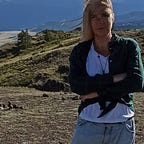To Vaccinate or Not to Vaccinate, That is the Question in Russia
Russia was the first to launch a COVID vaccine program this week in Moscow. Named in honor of another Russian first, the Earth orbit satellite, Sputnik V is free and officially available only to medical, education, and social workers. A two-step process, the vaccine shot is followed 21 days later by a booster.
New York Times coverage included a story, “The Kremlin Is Offering Russians Free Vaccines, but Will They Take Them?” Below the headline in bold print, “Distrust of the government is so widespread that 59 percent of Russians say they have no intention of getting a shot.” The article offered slim evidence connecting the 59% refusal rate, established by the well-respected Levada Center, to distrust of government. There was a quote from a 21 year old jazz musician and opposition leader Alexey Navalny, who is currently living in Germany, “voicing doubts about the vaccine” and calling on deputies and members of Putin’s family to be publicly vaccinated. The Times noted that while not under press observation, it has been reported that Putin’s daughter was vaccinated.
The same day an American friend encouraged me to ask neighbors what they thought. So, I conducted my own mini- “will you be vaccinated” survey. There was nothing scientific about it but it did yield two clear results. There is a much wider range of reasons people are not yet ready to be vaccinated in Russia than “distrust of government” and Siberians are obsessed with the flu. I started my survey in Altai, a poor but beautiful region on the Mongol border that currently has the highest per 100 thousand-infection rate. One neighbor Nadiya has a grown daughter in the hospital with COVID in another region. She equated it with taking the flu vaccine, “if you already have it, it can be twice as bad so maybe in the spring”. Another Nadiya also wanted to wait a few months because she is recovering from recent stent surgery. My Deputy friend in the next village was home on quarantine with asymptomatic COVID. She had a flu shot recently and wants her system to deal with that first.
Next, I asked members of two COVID related Facebook groups in Novosibirsk, the 3rd largest city in Russia and 24th out of 85 regions for officially reported cases of COVID. Eight people responded, three of them with a lively discussion about what IgG level was safe for vaccination. One respondent will wait six months because he is in recovery from COVID so already has immunity “naturally”. Another said he was closer to yes than no but, “First, I’m lazy and second, I haven’t cured my back yet, and my bad back dramatically reduces the desire to move anywhere.”
Two women said they would get it as soon as they could. One of them because she had a mild case of COVID and is still recovering, “It’s hard to explain how disgusting and dangerous this is. Better to have the flu with a 40 temperature.” Another man agreed, “I am on oxygen in the hospital after two weeks of a temperature. I am for any vaccine that is possible at the appropriate time. I wouldn’t wish this hell on anyone”.
The final word came from a surprising source in response to the one respondent who said “Russian vaccine — no”. He linked to a post from Leonid Volkov’s (Navalny protégé and Chief of Staff for his 2016 Presidential campaign) Facebook page. “There is no reason to believe that Sputnik-V is anything worse, more unreliable, more harmful, etc., than foreign vaccines. From what I read and could understand, this is far from rocket science”. This was followed by a ravaging critique of the whole COVID scene in Russia from hospitals to the vaccine rollout that was a unique disaster in the world due to the “P” (as in Putin) factor. And yet, “If you have the opportunity to get the Russian vaccine, why not. There is no evidence to indicate that this would be bad or harmful. I would get it myself”.
